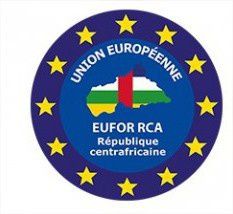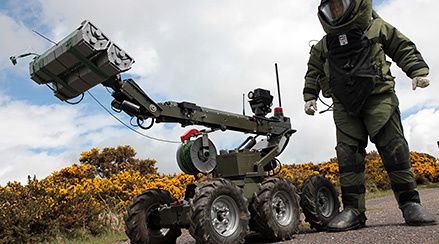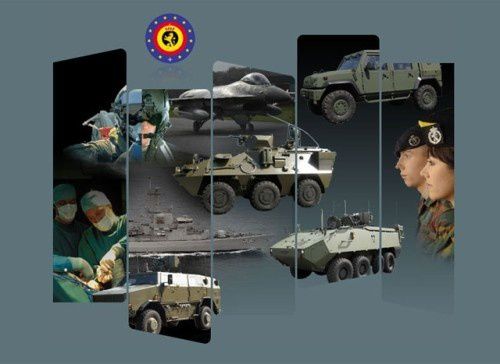9/2/2015 EU source: Council Ref: CL15-019EN
Summary: 9 February 2015, Brussels – European Union Foreign Affairs Council conclusions on counter-terrorism
1. The Council strongly condemns the recent attacks, which have been carried out by terrorist groups and individuals in Europe, the Middle East, Africa and Asia. Terrorism poses a direct threat to all countries and all people regardless of their ethnic background, religion or belief. In a globalised world, such threats can only be countered through international cooperation and determined national action. In this context, the Council reiterates the EU's strong support to relevant resolutions of the UN Security Council, in particular Resolutions 2170 and 2178, and calls on all countries to take the necessary measures to ensure their swift implementation with full respect for human rights and the Rule of Law.
2. The Council calls for comprehensive action against terrorism in line with the 2005 EU Counter-Terrorism Strategy and in full compliance with international law, fundamental values and international human rights standards. While Member States have the primary responsibility for addressing terrorism, the EU as such can add value in many ways. The actions taken in the area of justice and home affairs need to be complemented by external engagement and outreach, especially to countries in the Middle East, North Africa, the Sahel and the Gulf. Close coordination between internal and external action on the one hand, and between relevant EU actors and EU Member States on the other hand, will enhance the impact of our common efforts. We need to put more emphasis on the prevention of terrorism, in particular countering radicalisation, on recruitment, equipment and financing of terrorism, and address underlying factors such as conflict, poverty, proliferation of arms and state fragility that provide opportunities for terrorist groups to flourish.
3. Against this background, the Council decides to step up, as a matter of urgency, its external action on countering terrorism in particular in the Mediterranean, the Middle East, including Yemen, and North Africa, in particular also Libya, and the Sahel. Counter-terrorism (CT) will be mainstreamed fully into EU foreign policy. It calls for accelerated implementation of the EU Syria and Iraq and Counter-Terrorism/Foreign Fighters Strategy (adopted on 20 October 2014) with a particular focus on foreign terrorist fighters and the EU's Maghreb Communication. The Council welcomes the Joint Communication on EU regional strategy for Syria and Iraq as well as the Da'esh threat and looks forward to its implementation as soon as possible.
4. More specifically, the Council welcomes the following initiatives to be implemented in the course of 2015, building on those actions that are already taking place in the field of Justice and Home Affairs and in Foreign and Security Policy.
Strengthening partnerships with key countries
- Mainstreaming counter-terrorism in the EU's political dialogue with third countries to promote international cooperation and implementation of relevant UN Security Council Resolutions.
- Conducting targeted and upgraded security and counter-terrorism dialogues with Algeria, Egypt, Iraq, Israel, Jordan, Morocco, Lebanon, Saudi Arabia, Tunisia and the Gulf Cooperation Council. Cooperation with Turkey should also be enhanced in line with the GAC conclusions of December 2014.
- Strengthening political dialogue with the League of Arab States, the Organisation of Islamic Cooperation, the African Union and other relevant regional coordination structures, such as the G5 Sahel.
- Developing counter-terrorism action plans starting with Morocco, Tunisia, Algeria, Egypt, Jordan and Lebanon, including on measures to dissuade and disrupt foreign terrorist fighters' travel as well as to manage their return. Attention will also be given to targeted CT/CVE cooperation with the Western Balkan countries as well as with other countries affected by foreign terrorist fighters phenomenon. Given the importance of the creation of networks of policy makers and security experts on both sides of the Mediterranean, a Ministerial segment will be added to the Euromed group on foreign terrorist fighters established by the EU Counter-Terrorism Coordinator and the EEAS.
- Deploying security/counter-terrorism experts in a number of key EU Delegations to strengthen their capacity to contribute to European counter-terrorism efforts and to liaise more effectively with relevant local authorities, while further building-up of counter-terrorism capacity within the EEAS.
Supporting capacity building
- Launching further capacity-building projects and activities with interested MENA countries addressing law enforcement, criminal justice, security sector reform, including crisis infrastructure, crisis and emergency response, border control and aviation security, strategic communication, radicalisation, dealing with the foreign terrorist fighters threat, recruitment and financing of terrorism, paying due regard to international human rights standards, in close cooperation with Europol, Eurojust, Frontex and CEPOL.
- The EU will respond positively to Iraq's request of CT assistance. Projects will be launched shortly to assist countries in the MENA region to implement UNSCR 2178 on foreign terrorist fighters, to prevent radicalization in Jordan and the Maghreb. Further CT capacity building assistance to countries in the region will be provided in the coming months, in particular related to the threat of foreign terrorist fighters, including fighters returning to their countries of origin and security sector reform. The Radicalization Awareness Network will work with interested countries in the region on prevention of radicalization.
- The EU will work to develop frameworks for information exchange and ways for the EU agencies to engage more strategically with the countries in the region to strengthen law enforcement and judicial cooperation.
Countering radicalisation and violent extremism
- Supporting international initiatives on countering radicalisation and terrorism such as the first International Centre of Excellence for Countering Violent Extremism ("Hedayah") in Abu Dhabi, and the Global Community Engagement and Resilience Fund (GCERF) in Geneva, while the successful EU Radicalisation Awareness Network (RAN) offers expertise to engage with local communities as well as with third countries. The High Representative, the Commission and the EU Counter-Terrorism Coordinator will participate in the upcoming Summit on Countering Violent Extremism and related side events in Washington DC on 18-20 February 2015.
- Improving strategic communication, developing an outreach strategy to the Arab World, including developing counter-narratives to terrorist propaganda, promoting fundamental rights, and taking into account the increasingly frequent misuse of the internet in radicalisation, engaging through social media and enhancing communication in Arabic. In this process, we can draw on the expertise of the Syria Strategic Communications Advisory Team.
- Facilitating interfaith dialogue, civil society dialogue, people-to-people contacts, academic and cultural exchanges. Exploring the possibility of creating a Round of Eminent Persons from Europe and the Muslim world, to encourage more intellectual exchanges and promote wider thematic dialogues on the roots and ramifications of terrorism and radicalisation on our societies. In this context, inviting relevant EU Institutions to explore further cooperation opportunities with actors such as the Anna Lindh Foundation for the Dialogue of Cultures in Alexandria, the UN Alliance of Civilisations in New York and the King Abdullah Bin Abdulaziz International Centre for Interreligious and intercultural dialogue in Vienna.
- Addressing the underlying factors of radicalization by supporting initiatives across the region with regard to youth, education, vocational training, job opportunities, civil society, security sector reform, role of women. The EU will work with faith-based organizations, as appropriate.
- Inviting the EU Special Representative for Human Rights to continue his efforts to defend and advocate freedom of expression, freedom of religion or belief and other universal values in particular in the MENA region.
Promoting international cooperation
- Continue supporting cooperation with the UN on counter-terrorism capacity building initiatives in the MENA region. The EU will enhance further its engagement in the Global Counter-Terrorism Forum (GCTF), including by actively shaping GCTF inspired initiatives such as Hedayah in Abu Dhabi, the Global Community Engagement Resilience Fund (GCERF) and the International Institute for Justice and the Rule of Law in Malta.
- Enhancing cooperation with key partners and countries on countering financing of terrorism, in particular Da'esh financing. The EU hosted a workshop to counter Da'esh financing together with US, Canada, Australia, Switzerland, Norway, Japan, and UN agencies in Brussels on 4-5 February 2015 with the aim to step up outreach and capacity building efforts in third countries. The EU will engage with countries of the Gulf Cooperation Council in a dialogue on countering financing of terrorism, in particular Da'esh financing, and will closely cooperate with partners, including in the anti-ISIL coalition.
- Reinforcing, within the existing parameters, the role of EU INTCEN as the hub for strategic intelligence assessment at EU level, including on counter-terrorism.
- Regarding the Passenger Name Record data (PNR), we fully endorse the Riga JHA Ministers Joint Statement, and are looking for sound solutions to the exchange of PNR with relevant third countries.
- Combating illicit accumulation and trafficking of Small Arms and Light Weapons and their ammunition in line with the 2005 EU Strategy, in particular in the Western Balkans and Libya, and promotion of the Arms Trade Treaty in our Southern Neighbourhood.
Addressing underlying factors and ongoing crises
- Given the role unresolved conflicts play in the context of radicalization and recruitment, the EU will mobilize even more to attempt finding solutions and re-think current policies and approaches. The EU will mitigate terrorist and stability threats through its comprehensive approach combining diplomatic, socio-economic, development, conflict prevention, peacebuilding and crisis management tools.
- Inviting the High Representative and the Commission to continue to ensure sufficient funds and coherent use of instruments to address the threat of terrorism and move effectively from early warning to early action. CT, including prevention of radicalization, will, where appropriate, be mainstreamed into programming of assistance, making full use of the OECD guidelines on terrorism prevention. The EU delegations in the region have been asked to work with their host governments to identify quickly opportunities for twinning and TAIEX projects in the CT context.
5. These Conclusions will serve as an input of the Foreign Affairs Council for discussion at the informal meeting of EU Heads of State and Government on 12 February 2015. The Council agreed to review progress in implementation at its next meetings, also in view of upcoming European Council meetings.









/image%2F0547456%2F20150211%2Fob_bc31b6_dsc-0487-1024x682.jpg)
/image%2F0547456%2F20150211%2Fob_672b0a_dsc-0519-1024x682.jpg)
/image%2F0547456%2F20150211%2Fob_6d42d9_dsc-0532-1024x682.jpg)
/image%2F0547456%2F20150211%2Fob_b9eb11_dsc-0581-1024x682.jpg)






















